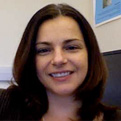Astrobiology
Astrobiology is the study of life in the universe. In this class, we will explore the origins of life on Earth and then look at how the scientific method has been used to generate hypotheses regarding the existence of life elsewhere in the universe.
-
Coursework Overview
The coursework for this Endeavor community involves taking a one-unit course in the fall semester and a half-unit course in the spring semester, both taught by Dr. Treonis.
Fall 2022 Semester Spring 2023 Semester BIOL 199: Astrobiology (1 unit) IDST 190: Astrobiology Seminar (.5 unit) BIOL 199 satisfies a general education requirement for natural science, and is a required course for prospective Biology majors and Biochemistry and Molecular Biology majors or minors.
IDST 190 is a half-unit project based course part of the Endeavor program.
-
Specific Course Information
BIOL 199: Astrobiology
In this class, we will explore the origins of life on Earth and then look at how the scientific method has been used to generate hypotheses regarding the existence of life elsewhere in the universe. Microbial life forms on Earth (e.g., bacteria, archaea) persist at environmental extremes and therefore serve as model organisms for the study of astrobiology. Lecture and lab experiments to test these hypotheses, whether performed on Earth, on other planets using remote sensing, or through space exploration (e.g., missions to Mars) will be reviewed. Astrobiology is an interdisciplinary science. A course theme will be how perspectives and methodology from different scientific disciplines integrate in pursuit of an answer to the fundamental question, “Are we alone in the universe?”
IDST 190: Astrobiology Seminar
Many areas of science are increasingly "crowd-sourcing" data collection activities to the general public in order to accelerate the acquisition of information. There are many of these so-called citizen science projects in astronomy, including some related to the discovery of new worlds that might be habitable and some related to SETI (the search for extraterrestrial intelligence). As a class, we will investigate the myriad of projects that exist and from what we learn, we will select four projects to participate in over the course of the semester. Each project will culminate in a presentation of the experience and the results at the Arts & Sciences Symposium in the spring.
-
Faculty Information

Dr. Amy Treonis is Associate Professor of Biology -
Roadmap Short Course Information
As part of the Endeavor program, you will participate in the popular Roadmap to Success pre-orientation program, where you will take a short course led by Dr. Treonis.
Short Course Description: Exploring the Microbial Universe
Every niche on Earth seems to harbor its own unique community of microorganisms, whether it’s the human belly button, the surface of leaf or the waters of a hot spring. In this short course, we will learn how biologists compare and contrast bacterial communities using DNA-based tools. Students will design and carry out a mini-experiment to study microbes from unique and extreme environments around campus.